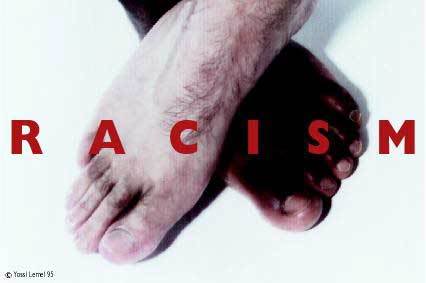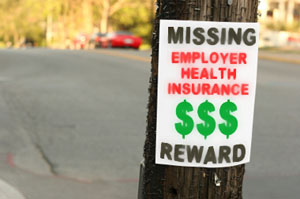 Happy Thanksgiving to all my American friends, and a great week to the rest of you. I will not be blogging for a bit, because I’ll be vacationing in the Galapagos, with my favorite evolutionary biology books no doubt at my side.
Happy Thanksgiving to all my American friends, and a great week to the rest of you. I will not be blogging for a bit, because I’ll be vacationing in the Galapagos, with my favorite evolutionary biology books no doubt at my side.
Is Opposition to Obamacare Racist?
 It is pretty easy to be against Obamacare these days. The federal government can’t come up with a working website to help people buy health insurance. The President misled people about whether they could hold onto their old insurance plans. And come next tax day, the least popular provision of the Affordable Care Act – the individual mandate – will be implemented for the first time.
It is pretty easy to be against Obamacare these days. The federal government can’t come up with a working website to help people buy health insurance. The President misled people about whether they could hold onto their old insurance plans. And come next tax day, the least popular provision of the Affordable Care Act – the individual mandate – will be implemented for the first time.
Lost amidst all this controversy is the very strong likelihood that once Obamacare is fully implemented, and the disastrous healthcare.gov website is functioning properly, the law will mean health insurance for millions of previously uninsured Americans. And the people most likely to benefit from this law, according to a recent study, are blacks and Hispanics who not only have higher rates of uninsurance, but also frequently demonstrate greater need for medical care.
Which raises a question: is it racist to oppose the Obamacare efforts to increase health insurance in the United States?…(Read more and view comments at Forbes)
What Do People Think About When Choosing Health Insurance Plans?
 Here is a discussion I had with Tess Vigeland of Los Angeles Public Radio about the psychology of choosing health plans.
Here is a discussion I had with Tess Vigeland of Los Angeles Public Radio about the psychology of choosing health plans.
(Click here to view comments)
Want to Learn How to Use Social Media?
 I am participating in a panel presentation, here at Duke University’s CIEMAS center, helping faculty think about when or whether to use social media to promote their work. I’ll be talking about blogging and tweeting and all that other stuff. Here are some details:
I am participating in a panel presentation, here at Duke University’s CIEMAS center, helping faculty think about when or whether to use social media to promote their work. I’ll be talking about blogging and tweeting and all that other stuff. Here are some details:
Duke faculty are invited to take part in a two-hour social media workshop organized by Duke’s Office of News & Communications (ONC) on Wednesday, Nov. 20 at 9 am.
ONC will open the session by introducing three Duke faculty members — Laurent Dubois, Robin Kirk and Peter Ubel — who are regular users of social media tools such as blogs, Twitter and Facebook. They will describe their experiences with social media, including what has and hasn’t worked for them and how they’ve incorporated social media into their classes.
They will also address common questions from faculty, such as:
— Is it a good idea to use blogging and other social media to promote your scholarship, or just a trendy waste of time?
— How can social media enhance your research or teaching?
— What are the potential advantages and pitfalls of being online so publicly?
— How do you balance this activity with your other responsibilities?
Read more here: http://today.duke.edu/2013/11/socialmediaworkshop13
Another Reason Why It Is so Difficult to Adapt to Chronic Pain
 I have done a fair amount of research exploring people’s ability to adapt to a wide range of illnesses and disabilities, too emotionally recover from these difficult circumstances more than the could have imagined. But chronic pain is one of those health conditions that many people find very difficult to adapt to emotionally. One reason may be because it is so hard for other people to empathize or sympathize with what it means to live with chronic pain. I was reminded of that idea when I came across the following quote recently, from Alphonse Daudet, a 19th century French philosopher:
I have done a fair amount of research exploring people’s ability to adapt to a wide range of illnesses and disabilities, too emotionally recover from these difficult circumstances more than the could have imagined. But chronic pain is one of those health conditions that many people find very difficult to adapt to emotionally. One reason may be because it is so hard for other people to empathize or sympathize with what it means to live with chronic pain. I was reminded of that idea when I came across the following quote recently, from Alphonse Daudet, a 19th century French philosopher:
Pain is always new to the sufferer, but loses its originality for those around him. Everyone will get used to it except me.
Definitely something to keep in mind the next time you encounter someone whose complaints about chronic pain would otherwise have fallen upon deaf ears.
Why Discussing the Cost of an MRI to Evaluate Knee Pain Can Be a Total Pain
 I want to share a wonderful blog post with you, written by one of “my” students, Laura Mortimer – a student in the Masters in Public Policy program at the Sanford School at Duke, who also happens to be a talented writer. In linking to her post, and then calling her my student, I of course am trying to grab credit for her accomplishments. What kind of mentor would I be if I didn’t try to do that? Here is her piece:
I want to share a wonderful blog post with you, written by one of “my” students, Laura Mortimer – a student in the Masters in Public Policy program at the Sanford School at Duke, who also happens to be a talented writer. In linking to her post, and then calling her my student, I of course am trying to grab credit for her accomplishments. What kind of mentor would I be if I didn’t try to do that? Here is her piece:
My right knee started bothering me on a long run a month ago. After weeks of pain, fruitless physical therapy, and no clear diagnosis, I had an MRI scan of my knee. Thankfully, nothing major showed up – just a persistent case of tendonitis. As a competitive runner hoping to compete in the Olympic Trials, I asked my doctor several questions: When will I be able to run again? What kind of cross-training should I do in the meantime? How many times a day should I ice? What can I do to keep this tendonitis from recurring? Should I hold off on buying plane tickets to that big race in December?
I failed to ask one important question, though: How much money will I have to pay for treatment? This failure is especially frustrating and surprising since my year-long Master’s Project focuses on clinical conversations about healthcare costs. I spend hours each week reading, writing, thinking, and talking about how doctors and patients can more effectively discuss out-of-pocket costs. If anybody should have the knowledge and resources to discuss medical costs, I should… (Read more at Sanford Journal of Public Policy)
On Advertising
 “Advertising is legalized lying.” – H.G. Wells
“Advertising is legalized lying.” – H.G. Wells
(Click here to view comments)
Obamacare and the End of Employer-Based Health Insurance
 According to the American Action Forum, 43 million American workers will lose access to employer-based health insurance coverage because of Obamacare. Critics of the Affordable Care Act (ACA) have warned that the creation of health insurance exchanges, and federal subsidies for people earning less than 400% of the federal poverty limit, practically invites employers to stop offering coverage to their employees, so the federal government picks up the tab. Some supporters of the ACA even celebrate this possible exodus from the employer-based insurance market, figuring it is prelude to a government takeover of the healthcare industry.
According to the American Action Forum, 43 million American workers will lose access to employer-based health insurance coverage because of Obamacare. Critics of the Affordable Care Act (ACA) have warned that the creation of health insurance exchanges, and federal subsidies for people earning less than 400% of the federal poverty limit, practically invites employers to stop offering coverage to their employees, so the federal government picks up the tab. Some supporters of the ACA even celebrate this possible exodus from the employer-based insurance market, figuring it is prelude to a government takeover of the healthcare industry.
What is missing amidst all these claims and controversies is good old-fashioned data. Fortunately, recent research published in the journal Health Affairs provides some levelheaded evidence about what has been happening to employer-based insurance over the past decade, and what we can expect to happen in the future.
The first article was written by Thomas Buchmueller and colleagues, from the University of Michigan. The Michigan team began by analyzing trends in employer-based health insurance coverage in the United States from 2000 to 2011. Trend number one, illustrated in the picture below, serves to remind us that big companies – with 100 or more employees – have consistently offered health insurance to their employees over this period of time, while insurance coverage has been much more hit or miss for smaller firms… (Read more and view comments at Forbes)
Newsweek Tackles the Challenge of Money Talk
 In response to the New England Journal article I published with Yousuf Zafar and Amy Abernethy, Newsweek chimed in this week with a report on the topic, including some thoughtful commentary from other medical experts. I thought it was worth pointing you towards this article, in part to remind you that Newsweek still exists, and also because it is a very nicely written article:
In response to the New England Journal article I published with Yousuf Zafar and Amy Abernethy, Newsweek chimed in this week with a report on the topic, including some thoughtful commentary from other medical experts. I thought it was worth pointing you towards this article, in part to remind you that Newsweek still exists, and also because it is a very nicely written article:
How much bad news is your doctor obliged to give you?
Consider this very depressing scenario: You’ve got colon cancer. Your doctor might tell you there’s some good news, that there’s a powerful and effective drug called Avastin, but warn you about its potentially harmful side effects – it can mess up your heart. But should your doctor also mention another devastating side-effect – that an Avastin regimen could cost more than $50,000, and that a patient who has Medicare but no supplemental insurance might have to pony up $9,000 for this treatment?We like to pretend doctors are purists who only focus on our physical and mental well-being, but isn’t the health of your wallet also important?
In light of the current, charged debate about unsustainable health-care costs and the Affordable Care Act, Peter Ubel, Duke University professor of medicine, feels it’s time for a cultural shift among doctors. In a New England Journal of Medicine article he wrote with colleagues, Ubel argues that physicians needed to start incorporating the cost of care into their diagnoses. Continue reading here.
On Distractions
 Widower Woodrow Wilson fell in love with Edith Galt in 1915. The President’s doorkeeper summarized the situation tersely:
Widower Woodrow Wilson fell in love with Edith Galt in 1915. The President’s doorkeeper summarized the situation tersely:
“She’s a looker; he’s a goner.”
